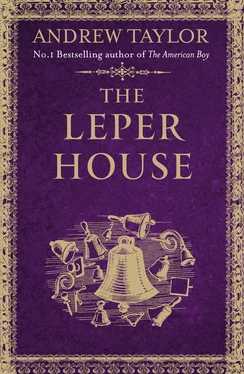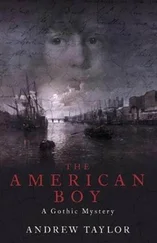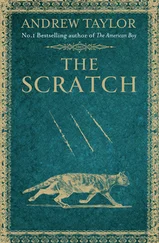Go away. I hate you.
By the time I left the crematorium, everyone else had gone and the cars for someone else’s funeral had refilled the car park.
I had no desire to join them in the village hall, so I set off for home – or rather, towards Ipswich, where I had booked a room in a Travelodge for the night. I had an appointment nearby with a client first thing in the morning, and afterwards I planned to drive back to London.
That was the idea. But the journey went wrong from the start. There were roadworks and I took several wrong turns. My mind was on Mary, not navigation, and I managed to get myself thoroughly lost.
By now it was the provincial equivalent of rush hour. I joined a line of traffic crawling behind a mechanical digger a hundred yards ahead. Darkness fell, the light leaching slowly from the pale grey dome of the East Anglian sky. The rain grew steadily heavier. After nearly an hour we passed a junction with another main road and the digger turned aside. But afterwards the traffic moved almost as slowly as ever.
It was seven o’clock before I found myself on the A12, which runs roughly parallel with the coast down to Ipswich. I was miles out of my way. How I had got there, I have no idea. I soon discovered that the A12 is not a fast road. You are at the mercy of whatever lies ahead of you.
A sign loomed up by the side of the road: Put British Pork on Your Fork .
The headlights of passing vehicles swept over the field beside the sign. The beams revealed hundreds of arcs made of corrugated iron standing in a sea of mud.
It was a pig farm. I had seen several of them on the drive up to Norwich in the morning. It looked like a prison camp, but perhaps, compared to the solitude and confinement of a traditional sty, it was a porcine paradise.
On the other hand, some or possibly all of the pigs had broken out of paradise. The headlights ahead picked out at least half a dozen of them in the middle of the road and others rootling on the grass verges. The stream of cars was slowing. Then it stopped.
For a minute or two I sat there, watching the wipers slapping to and fro across the windscreen. No traffic was coming from the opposite direction. When she was very small, Mary had had a thing about pigs. She had pigs on her wallpaper, pigs on her duvet, pigs on her favourite mug. I used to call her ‘Piggy’ and make grunting noises, which enraged her – partly, I think now, because she liked pigs so much that she almost wanted to be one.
Two drivers in the queue ahead had left their cars and were discussing the hold-up. I grabbed my umbrella and went to join them.
‘It’s at least half a mile solid up there,’ one of them told me with gloomy pride. ‘Them bloody pigs are all over the shop. They made an artic jackknife right across the road. That’s why nothing’s bloody getting through.’
The other one was looking ahead, peering through the rain. ‘They’re turning off up there.’
He was right. Ahead of us, cars were peeling away one by one from the main road and turning left.
‘Seawick Road,’ said the first one. ‘You can cut through that way – work your way back to the A12 a mile or two south.’
A car overtook us, followed by a second and a third. They all turned left. Other drivers had had the same idea.
The second man said, ‘Could be hours before they clear this lot. Where are the police when you want them?’
‘I ain’t waiting around for them. I’m late for tea already and it’s my eldest’s birthday.’
They went back to their cars, and so did I. When they pulled out of the line, I joined them. There’s nothing so tedious as waiting in a queue. The first man was a local and clearly knew the way. All I had to do was follow. Besides, I had a satnav program on my phone, so, if the worst came to the worst, I could always find my own way back to the A12.
That was my first mistake. Perhaps the pigs were an omen, if only I’d had the sense to see it.
At first everything was easy. I congratulated myself on my cleverness. I followed the tail lights of the car ahead and had the reassurance of other people’s headlights behind me. The road was narrow and winding. There was a good deal of surface water, which threw up spray as the cars passed through it.
We came to a large puddle that stretched across the whole road. The cars ahead edged through it. The two I was following were both four-wheel drives, high off the road. I gave them a few seconds and then followed even more slowly in my little Honda.
I reached the other side in safety. But because of the delay the tail lights ahead were no longer visible. Nor were the headlights behind – perhaps the other cars had turned off, rather than risk the puddle.
By now it was completely dark. It was still raining. I drove on for half a mile. The road passed through dense woodland, a conifer plantation perhaps. There were no lights to be seen.
I stopped at the side of the road. I turned on the phone and pressed the icon for the maps program. It began to load, then froze. I waited a moment. Nothing happened. It was then that I noticed on the top left-hand corner of the screen the words No Service .
This was tiresome, but no more than that. If I drove on I would come to a signpost or, at the very least, a house where I could ask the way. Or the black spot would end and my phone would start working again. Unfortunately, I didn’t have a road atlas in the car, but I knew I was somewhere between the A12 to the west and the North Sea to the east. The strip of land between them was relatively narrow, so I could hardly get seriously lost. I had nearly half a tank of petrol. True, I was growing hungry – I rather regretted turning up my nose at the sandwiches in the village hall – but once I was back on the A12 I would soon find a pub or café where I could stop for a snack.
I drove off again. My world contracted to the interior of the car and the twin cones of the headlights, diagonally slashed with rain. The road narrowed to a lane. It left the wood and wound between hedges. It acquired a slight but perceptible downward gradient.
The car lurched. And again. And again. And again.
I swore and braked. There was a puncture on the nearside rear tyre. I had probably picked it up when I had stopped at the side of the road to try the phone.
I pulled over, cut the engine and opened the glove compartment. There was a torch in there, though I hadn’t used it for months. I flicked the switch and, to my relief, the bulb lit.
I switched on the hazard lights and climbed out of the car. The wind had got up in the last hour or so. It snatched the door from my hands and threw it open. A squall of rain hit my face. I tried to raise the umbrella – it was one of Beth’s, a cheap one designed for a handbag – and the wind immediately blew it inside out.
I swore loudly. I dropped the remains of the umbrella on the floor of the car and made my way to the back. I kept an old waxed jacket in the boot. I shrugged it on – it was clammy and heavy, but it gave some protection against the weather.
It was years since I had changed a tyre, but it was a perfectly straightforward job unless the wheel nuts were screwed on too tightly. I pulled up the base of the boot to take out the spare.
Only then did I remember that the Honda didn’t have a spare tyre. To save space and weight, the designers had substituted a little repair kit that was supposed to provide a temporary remedy for a puncture, enough to get you to the nearest garage. I had no idea how this kit worked and I was pretty sure that trying to use it in the rain and darkness would get me nowhere.
That left me with two options: settle down, cold and hungry, and spend the night in the car; or try to find help.
Читать дальше












